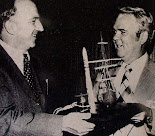By Jesse Rubin
 WOODSTOCK, NY — On the 12th annual Woodstock Volunteers
Day, residents gather in the Andy Lee Field for home-cooked food, folk
songs and recognition of “what is good about [their] community.”
WOODSTOCK, NY — On the 12th annual Woodstock Volunteers
Day, residents gather in the Andy Lee Field for home-cooked food, folk
songs and recognition of “what is good about [their] community.”
Two volunteers tabling for the environmental group Scenic Hudson ask for signatures and email addresses at the park entrance.
Tarak Kauff, a member of the antiwar group Veterans For Peace, lends his name to the environmentalist cause.
When Kauff presents the volunteers with
his own petition, they hesitate. The petition, written by a group of
local activists known as Woodstock Peace Economy, asks aerospace and
military contractor Ametek Rotron to switch over all its production to
civilian use. The 70-year-old company is the largest employer in this
town of about 6,000 residents.
The two volunteers seem to hide behind their table. “Rotron?” one asks. “I thought they only made fans.”
Kauff tells them about the campaign and
about the fans’ essential role in the functioning of F-16 fighter jets,
cluster bombs and predator drones.
They decline and continue asking for signatures, some of which likely come from Rotron employees.
Military Contracts
In 2015 Ametek Rotron landed $2.6 million in Pentagon
contracts. Compared to Lockheed Martin — one of the largest defense
companies in the world with declared revenues of $46.1 billion the same
year— this number is negligible.
But for a town that came to prominence as
a haven for artists and later became synonymous with ’60s-era idealism
and whose council declared it “drone free” in 2014 — any Pentagon
dollars are incongruous.
So say activists affiliated with
Woodstock Peace Economy who have recently renewed a long-running
campaign against Rotron’s manufacture of weapons parts that dates back
to the 1980s.
“Located in buildings just out of sight,
off Rte. 375, Ametek Rotron makes high-tech fans, balls bearings and
other essential parts for weapons used to terrorize and kill people the
world over,” reads the group’s latest petition. “As most of us in
Woodstock support peace and not war, the signers below request that
Ametek Rotron explore how to convert its manufacturing facilities to
support peace and not war.”
Route 375 is a main road into Woodstock —
but before reaching the downtown, which trades on its image of a hippie
haven — visitors must pass an inconspicuous white sign announcing the
Rotron factory. While well established, it is unknown outside of the
nearby Hudson Valley towns.
Founded in 1946 by Dutch engineer J.
Constant van Rijn, the Rotron Manufacturing Company patented and
developed high-intensity electronics cooling fans, which soon became
critical for the burgeoning aerospace market of the 1950s.
By 1958 Rotron had developed the industry
standard muffin fan, a powerful but quiet electronic cooling system. In
tangent with his company’s success, Rijn became known as an arts patron
in Woodstock. He is known for having contributed a heating plant to the
Hudson Valley Repertory Theater so the famous playhouse could operate
all year long.
He even “dedicated a statue of the
buddha,” Woodstock Peace Economy activist, professor and longtime
Woodstock resident Laurie Kirby told The Indypendent. “It’s the largest Buddha statue in North America.”
In 1961, the same year U.S. air and
ground forces officially became active in Vietnam, Rotron developed and
released the Mil-B-23071 standard for AC fans — the company’s first
product strictly for military use.
The U.S. military uses an updated version of this fan to this day.
In the intervening years, as the United
States has consolidated its position as arms merchant to the world,
Woodstock’s largest employer has steadily increased its military
business.
In 2015, Rotron secured 79 Pentagon contracts, its highest
number ever, and logged record profits. On the whole, the U.S.
armaments industry maintained its status as the largest in the world,
accounting last year for 33 percent of global military exports, or $455
billion, according to the Defense Finance and Accounting Service (DFAS),
the financial branch of the Defense Department.
Meanwhile, the company is reluctant to
admit its weapons industry involvement, instead insisting that it is
merely a supplier of nonlethal technology. But research conducted by The
Indypendent and activists confirms the inextricable link.
According to public Pentagon contracts,
Rotron produces centrifugal fans for F-16s, Milstar satellite systems,
CV-22 Osprey helicopters, long-range navy radar and M1A1 tanks.
Ametek Rotron, in addition, is the main
supplier of the fuel density probe, a critical component in the
operation of Unmanned Aerial Vehicle (UAV) aircraft including the
Predator Drone.
A leaked contract dated October 1, 2009, confirms Rotron supplied 50 fans to the Israeli Air Force that year.
The final destination of the fans remains
unclear, but it is likely they operate in F-16s. In addition, a
recently published Pentagon contract shows that Rotron provides a $7,365
motor to the Israeli Defense Ministry, confirming the company’s ongoing
direct business with that country’s government.
...
...











